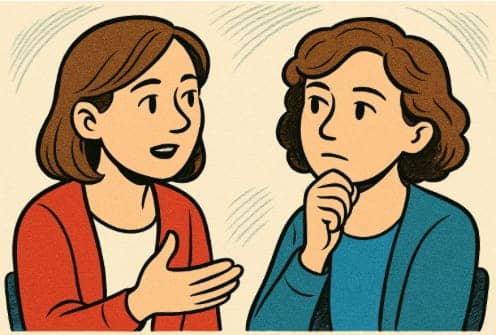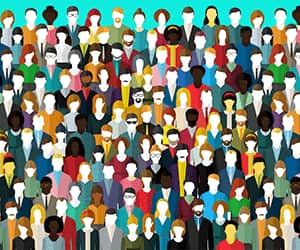Scrolling through my phone alone at midnight feels different from me laughing a bit too loudly at a work happy hour. It is not just the caffeine or lack thereof. That weird shift? That is social psychology whispering in your ear, my friend. It is the fascinating, sometimes unsettling, study of how other people, even just the idea of other people, completely warps how we think, feel, and act. We love the story of the strong, independent individual, right? The captain of our own ship. But decades of research gently and sometimes not so gently poke holes in that myth. Think about it: How many times have you gone along with the group just to keep the peace Or found yourself adopting an opinion because everyone else seemed so sure I remember once, early in a new job, agreeing enthusiastically to a project approach I privately thought was nuts simply because every single person* in the meeting nodded along. The pressure to belong is a real, invisible force So, how does this influence work? Psychologists point to a few key engines. When things are fuzzy, we glance around. If everyone else seems calm during a weird noise, we assume it is fine. That is why crowds sometimes just stand there during potential emergencies. Everyone is subtly checking everyone else’s lack of panic, reinforcing the idea nothing is wrong. Scary, right? This is the big one. We tweak our opinions, our clothes, even how we see things, just to fit in and avoid that gut-wrenching feeling of rejection. It is why fashion trends explode and why political beliefs can feel like team jerseys sometimes. We are social creatures, hardwired for connection, even if it costs us a little authenticity.
Put people in a group, and things get unpredictable. Ever been on a team project where one person may be you? kinda faded into the background? That is social loafing, the tendency to put in less effort when responsibility is shared. Flip side: ever nail a presentation better because people were watching? That is social facilitation performing simple tasks better with an audience. Groups amplify and distort us. Then there is how we see others. Ever witness someone trip and instantly think clumsy! without considering the slippery floor? That is the fundamental attribution error in action blaming personality while ignoring the situation. It feeds stereotypes and makes it way too easy to judge. And speaking of bias, the research on implicit bias is a wake-up call. Even folks who genuinely believe in equality often harbor unconscious preferences that leak into behavior. It is uncomfortable, but crucial to acknowledge. We are all works in progress.

Understanding how persuasion works is key today. Sometimes we change our minds by deeply processing facts centrally. But often? We are swayed by a charismatic speaker, catchy music, or just seeing something shared everywhere on the peripheral route. This is where social psychology gets incredibly practical for daily life, helping you understand everything from marketing to political arguments, and yes, understanding these social psychology principles can literally change how you navigate work, relationships, and even social media – it is that powerful.No wonder logical arguments often crash and burn against emotion or social proof. One of the most fascinating things about social psychology is how tiny tweaks in our environment can lead to massive shifts in behavior. Take the foot-in-the-door technique, where agreeing to a small request like signing a petition makes people more likely to comply with a bigger one later, like donating money. Or consider how simply rearranging a cafeteria to put healthier food at eye level can nudge people toward better choices without them even realizing it.
It makes you wonder how many of our daily decisions are shaped by subtle, invisible cues around us? I remember once volunteering at a fundraiser where we started by asking people to take a sticker, something trivial. By the end, those same people were far more willing to donate. It was like watching psychology in real time. Here’s the frustrating part: even when we know about these biases and influences, we still fall for them. Ever scrolled through social media, fully aware of the echo chamber effect, yet still felt your own beliefs reinforced? Or caught yourself judging someone harshly, despite knowing about the fundamental attribution error? That’s because social psychology isn’t just about logic; it’s about deeply ingrained instincts. Our brains are wired for shortcuts, for fitting in, for trusting the group. Fighting that takes more than just awareness; it takes deliberate effort. I’ve had moments where I’ve had to stop and ask myself: Am I agreeing with this because it’s true, or because it’s what my friends think? Spoiler: It’s not always easy to tell. The insights are not just academic. Social psychology helps design better schools, reducing bias, boosting cooperation, promoting health behaviors using social norms, improving workplaces, and informing policies to reduce conflict. But it raises significant questions, too. Where is the line between ethical influence and manipulation? How do we change systems, not just individuals? That is the ultimate takeaway, at least for me. Social psychology does not let us off the hook for our actions. But it forces us to look beyond the individual. It shows how the invisible currents of the social world shape us all. Want real change? We need to understand, and sometimes redesign, the rivers we are all swimming in. It is not just about fixing people; it is about understanding the powerful water they are floating in. What do you think? Ever caught yourself acting differently in a group? I know I have.
References
Asch, S. E. (1956). Studies of independence and conformity: Psychological Monographs*, 70(9), 1-70. Available through PsycARTICLES database.
Tajfel, H., & Turner, J. C. (1979). An integrative theory of intergroup conflict. In W. G. Austin & S. Worchel (Eds.), The Social Psychology of Intergroup Relations (pp. 33-47). Monterey, CA: Brooks/Cole. Available through academic libraries.
Greenwald, A. G., & Banaji, M. R. (1995). Implicit social cognition: Attitudes, self-esteem, and stereotypes. *Psychological Review*, 102(1), 4-27. Available through PsycARTICLES and PubMed databases.

